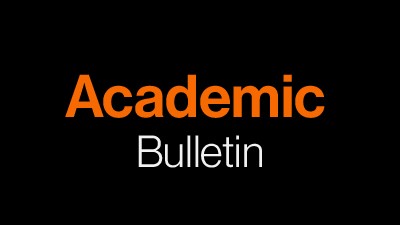Master of Science in Professional Studies: Data Analytics
- RIT/
- RIT Kosovo/
- Academics/
- Graduate Degree
This program equips participants for thriving careers by assisting organizations locally and globally in making informed decisions through analytics. It prepares participants to adeptly handle intricate, real-world data and create value from it. Rooted in a comprehensive educational approach, the program seamlessly intertwines theory and practice with ongoing support from partners in both the public and private sectors.
A data analytics degree where you’ll adeptly handle intricate, real-world data and create value from it.
This program equips participants for thriving careers by assisting organizations locally and globally in making informed decisions through analytics. It prepares participants to adeptly handle intricate, real-world data and create value from it. Rooted in a comprehensive educational approach, the program seamlessly intertwines theory and practice.
The Master of Science in Professional Studies: Data Analytics stands as an unparalleled program in Kosovo, offering you the expertise to enhance organizational decision-making through the application of data analytics. Developed in collaboration with RIT (Rochester Institute of Technology) campuses in Dubai and New York, this program ensures graduates are well-versed in working adeptly with intricate, real-world data to contribute value aligned with their organization's strategic goals.
This distinctive program's curriculum systematically addresses all facets of data analytics, encompassing data mining, enterprise infrastructure, security risk management and visual analytics.
The program delves into data collection and analysis for emerging technologies like artificial intelligence, virtual realities, robotics, and machine learning. Throughout the program, students are actively encouraged to implement their newfound knowledge within their organizations, exploring novel work-based opportunities to enhance operational efficiency by more effectively gathering and interpreting data.
Learning Outcomes
As a graduate of the Master of Science in Professional Studies program, the student will be able to:
- Identify and quantify business challenges to support strategic decision-making.
- Gather, clean, and prepare data effectively for analytical model building.
- Implement data analytics platforms to handle extensive data storage, management, and processing.
- Use descriptive, predictive, and prescriptive models to generate valuable insights from data.
- Analyze data, interpret results, and communicate findings in ways that are clear and actionable.
- Make informed business decisions that create value, grounded in data analytics.
- Identify and critically analyze the security, ethical, and privacy implications associated with data use.
- Explain the role of emerging technologies in data analytics and how they impact the field.
- Carry out research and apply research methods relevant to the field of data analytics.
Skills Acquired by Student
Through this program, the student will acquire the following skills:
- Business problem definition and quantification
- Data collection, cleaning, and preparation
- Data management and platform deployment
- Descriptive, predictive, and prescriptive modeling
- Data interpretation and visualization
- Strategic decision-making with data
- Identifying ethical and privacy concerns
- Emerging technology analysis
- Research design and methodology in data analytics
- Effective communication of analytical insights
Competencies Developed
By completing the Master of Science in Professional Studies program, the student will be competent in:
- Applying data-driven insights to define, analyze, and strategically solve business problems.
- Collecting, preparing, and managing data on large platforms to ensure quality and reliability in analysis.
- Implementing sophisticated data models to generate actionable insights for business applications.
- Drawing and communicating insights from data that can influence meaningful business strategies.
- Making business decisions based on analytics that drive organizational value and competitive advantage.
- Understanding and addressing security, ethical, and privacy considerations in data-related decisions.
- Leveraging knowledge of new technologies to stay ahead in the evolving field of data analytics.
- Designing and conducting research projects that contribute to advancements in data analytics methodologies and applications.
Accreditation
RIT is consistently ranked among the top American Universities and continuously increasing its rank. The degree you will earn at RIT Kosovo is a fully recognized university degree from RIT New York.
- ATMAE https://www.atmae.org/page/AccredHome
- Middle States https://www.msche.org/institution/0372/
- Kosovo Accreditation Agency https://akreditimi.rks-gov.net/sq/ritkosovo/
Industry Advisory Board
Our mission is to drive the growth and expertise of the Data Analytics profession and ensure world-class Data Analytics professional skills for the cognitive era of the region. RIT Kosovo's Industry Advisory Board plays an important role in mentoring data analysts by defining skills and roadmaps for career progression and ensuring effective data analytics programs that can be utilized to solve organizational challenges.
RIT Kosovo Industry Advisory Board members:
Rozeta Hajdari
Minister, Ministry of Industry, Entrepreneurship and Trade
Astrit Leti
Director of Operations, Tive
Jeta Zagragja
Secretary General, American Chamber of Commerce
Brikena Meha
Project Manager, UNDP
Agon Gashi
Executive Director, Meridian
Nora Hasani
Executive Director, German-Kosovar Chamber of Commerce
Shkembim Mustafa
Flexograf FLOIL, Owner
Metihe Kastrati
Executive Director, Innovation Center Kosovo
Pleurat Halili
CEO, Fluidi Group
Career and Global Opportunities
Graduation Ceremony
RIT is consistently ranked among the top American Universities and continuously increasing its rank. The degree you will earn at RIT Kosovo is a fully recognized university degree from RIT New York. The Master of Science in Professional Studies degree with focus on Data Analytics is offered at RIT’s main campus in Rochester, New York, in RIT Kosovo and at RIT Dubai campuses. Because the same curriculum is offered in all locations, students may take one of the courses in the global campuses while learning more about the Dubai or New York culture. Whether students choose to study abroad or remain in RIT Kosovo, they will be working side-by-side with their peers from across the world.
RIT Kosovo master students have a great opportunity to attend the Commencement Ceremony in RIT Rochester, New York when graduating if they wish to do so.
Career Options
The Data Analytics program in Kosovo is designed for working professionals aiming to enhance their understanding and expertise in the rapidly expanding domain of data-driven business operations. As the only degree program of its kind in Kosovo, it offers a unique opportunity for individuals to develop a high-level understanding of how data translates into actionable insights within various business contexts. Graduates of the program will possess a distinctive skill set combining technical proficiency in data analysis with a deep understanding of business operations, making them highly sought-after professionals across industries.
With a focus on flexibility and accessibility for working adults, the program acknowledges the need for individuals to advance their careers without interrupting their professional commitments. Through its comprehensive curriculum, graduates will be well-prepared to navigate Kosovo's evolving business landscape, where data-driven strategies are increasingly crucial for maintaining a competitive edge. By equipping professionals with the skills to extract meaningful insights from data and translate them into strategic decisions, the Data Analytics program serves as a cornerstone for driving innovation and growth within Kosovo's business community.
Curriculum
Students of the Master of Science in Professional Studies must successfully complete a total of 33 semester credit hours.
The table below shows the program structure of Master of Science in Professional Studies: Data Analytics program courses.
| Course Code | Course Title | Credit Hours |
|---|---|---|
| First Year | ||
| PROF - 705 | Context and Trends: Data Analytics | 3 |
|
The gateway course for students enrolled in the MS in professional studies degree program. Course provides students with opportunities to interact about controversial issues while discovering foundational knowledge about interdisciplinary history, theory, along with applied problem-solving, research methods and professional ethics. Students use this course as a means of designing and receiving approval for individualized plans of study. (Department permission required). Students should consult their adviser before registering. Lecture 3 |
||
| PROF - 740 | Fundamentals of Data Analytics | 3 |
|
This course introduces students to foundational skills in data analytics, with a focus on mathematical foundations. Students will explore topics that form the backbone of modern data analytics such as machine learning, data mining, artificial intelligence, and visualization. Tools for statistics will be introduced to students for how to go from raw data to a deeper understanding of the patterns and structures within the data, to support making predictions and decision making. Lecture 3 |
||
| ISTE - 600 | Foundation of Data Mining | 3 |
|
This course provides students with exposure to foundational data mining techniques. Topics include analytical thinking techniques and methods, data/exploring data, classification algorithms, association rule mining, cluster analysis and anomaly detection. Students will work individually and in groups on assignments and case study analyses. Lecture/Lab 3 |
||
| PROF - 741 | Enterprise Infrastructure for Data Analysis | 3 |
|
This course introduces students to the challenges in large and small organizations related to data analysis and storage. Students will be introduced to economic infrastructure approaches for handling data securely. Platforms which are hosted both on-premises of organizations and in the cloud will be covered in this course. Lecture 3 |
||
| PROF - 790 | Data Analytics for Emerging Technologies | 3 |
|
This course explores the emerging technologies that are driving the acceleration of applications and the data produced by them Big Data and its 5V characteristics – volume, velocity, veracity, variety and value –across industry, research and academia. Students will be introduced to a range of complemented technology disciplines like cybersecurity, virtual content delivery, artificial intelligence, and smart cities where the uses of real-time analysis on big datasets are applied. Particular focus will be paid to a review of a number of industry verticals and data related to how emerging technologies are used with an emphasis on privacy and ethical considerations. (Pre-requisites: PROF-705 or equivalent course; course restricted to MS in professional studies students) Lecture 3 |
||
| ISTE - 782 | Visual Analytics | 3 |
|
This course introduces students to Visual Analytics, or the science of analytical reasoning facilitated by interactive visual interfaces. Course lectures, reading assignments, and practical lab experiences will cover a mix of theoretical and technical Visual Analytics topics. Topics include analytical reasoning, human cognition and perception of visual information, visual representation and interaction technologies, data representation and transformation, production, presentation, and dissemination of analytic process results, and Visual Analytic case studies and applications. Furthermore, students will learn relevant Visual Analytics research trends such as Space, Time, Multivariate Analytics and Extreme Scale Visual Analytics. Lecture/Lab 3 |
||
| Second Year | ||
| ISTE - 780 | Data Driven Knowledge Discovery | |
|
Rapidly expanding collections of data from all areas of society are becoming available in digital form. Computer-based methods are available to facilitate discovering new information and knowledge that is embedded in these collections of data. This course provides students with an introduction to the use of these data analytic methods, with a focus on statistical learning models, within the context of the data-driven knowledge discovery process. Topics include motivations for data-driven discovery, sources of discoverable knowledge (e.g., data, text, the web, maps), data selection and retrieval, data transformation, computer-based methods for data-driven discovery, and interpretation of results. Emphasis is placed on the application of knowledge discovery methods to specific domains. Lecture/Lab 3 |
||
| CSEC - 733 | Information Security Risk Management | 3 |
|
This course will provide students with an introduction to the principle of risk management and its three key elements: risk analysis, risk assessment and vulnerability assessment. Students will also learn the differences between quantitative and qualitative risk assessment, and details of how security metrics can be modeled/monitored/controlled and how various types of qualitative risk assessment can be applied to the overall assessment process. Several industry case studies will be studied and discussed. Students will work together in teams to conduct risk assessments based on selected case studies or hypothetical scenarios. Finally, they will write and present their risk assessment reports and findings. Lecture 3 |
||
| PROF - 799 | ST: Privacy Law and Data Protection | 3 |
|
Privacy Law and Data Protection. |
||
| PROF - 770 | Proposal | 0 |
|
This course guides the student through preparation of the Capstone Proposal that is required for the applied final course of his/her MS in professional studies degree - the Capstone Project. Student will determine a Capstone Project concept, and articulate the methods for implementing the Capstone Project. The course concludes with a paper describing the Capstone Project, including background and description, methodology, anticipated outcomes, and probable Capstone Adviser. Student will meet regularly with the course facilitator. Upon successful completion of this course, student will be registered for the Capstone Project. (Department permission required) (Pre-requisites: PROF-705 and core coursework; course restricted to MS in professional studies students) Seminar 3 |
||
| PROF - 775 | Capstone Project | 6 |
|
The capstone course for students enrolled in the MS in professional studies degree program. With individualized advising from a faculty adviser, students participate in a real world problem solving project carried out in an organizational setting while also relating to a student’s professional concentrations. Course requirements involve completing a literature review, writing a project proposal, engaging in online discussion with faculty adviser and other SOIS capstone students, various kinds of field work, writing full draft and final academic report and making a Power Point presentation. Registration completed on behalf of students following faculty review of acceptable capstone project proposal. (Prof 770; Department approval) |
||
| Total Semester Credit Hours - 33 | ||
Schedule
Fall 2024
PROF 705 Context & Trends
Sep 9 – Oct 6, 2024 | In person dates Sep 14 – Sep 22
PROF 740 Fundamentals of Data Analytics
Oct 7 – Nov 3, 2024 | In person dates Oct 12 – Oct 20
ISTE 600 Foundations of Data Mining
Nov 4 – Dec 1, 2024 | In person dates Nov 16 – Nov 24
Spring 2025
PROF 741 Enterprise Infrastructure for Data Analysis
Jan 20 – Feb 16, 2025 | In person dates Feb 1 – Feb 9
PROF 790 Data Analytics for Emerging Technologies
Feb 18 – Mar 23, 2025 | In person dates Mar 15 - Mar 22
ISTE 782 Visual Analytics
Mar 24 – Apr 27, 2025 | In person dates Apr 12 – Apr 19
PROF 799 ST: Privacy Law and Data Protection
Apr 11 - May 8, 2025 | In person dates Apr 26 - May 4
Fall 2025
PROF 770 Proposal
Sep 9 – Dec 1, 2025 | In person dates Week 1: Mon – Thur 4pm-6pm + Individual meetings
ISTE 780 Data Driven Knowledge Discovery
Sep 9 – Oct 5, 2025 | In person dates Sep 22 – Oct 3
CSEC 733 Information Security Risk
Oct 6 – Nov 2, 2025 | In person dates Oct 20 – Oct 31
Spring 2025
PROF 775 Capstone Project
Jan 20 – Apr 30, 2026 | In person dates Week 1: Mon – Thur 4pm-6pm + Individual meetings
During in-person times all classes meet as follows:
- Monday – Thursday 5pm-8pm
- Friday off
- Saturday 9am-5pm
- Sunday 9am - 1pm
Faculty Members
Admission Criteria
 |
To be considered for the MS Program in Professional Studies in Data Analytics, candidates must fulfill the following requirements:
Note: Applicants whose native language is not English must submit scores from the TOEFL, IEST, or PTE. A minimum TOEFL score of 85 (internet-based) is required. A minimum IELTS score of 6.5 is required. The English language test score requirement is waived for native speakers of English or for those submitting transcripts from degrees earned at institutions where the language of instruction was in English. RIT Kosovo (A.U.K) Alumni do not need to take the TOEFL exam. Complete the graduate application form below:
|
Tuition and Fees
| Application Fee | Semester | Year |
|---|---|---|
| Application fee | € 100.00 | |
| Tuition | € 3,875.00 | € 7,750.00 |
| Technology fee | € 50.00 | € 100.00 |
| Total year 1: | € 7850.00 | |
| Tuition | € 3,875.00 | € 7,750.00 |
| Technology fee | € 50.00 | € 100.00 |
| Total year 2: | € 7850.00 |
An RIT graduate degree is an investment that will provide lifelong returns. RIT and RIT Kosovo (A.U.K) has a long history of providing high quality academic degrees that offer applied research and real-world experiences to prepare you for career success. While tuition at RIT main campus in New York is approximately $91,000.00 for graduate programs, students enrolled at RIT Kosovo (A.U.K) enjoy a considerable discounted rate.
The program fee for the whole program of study includes: all lecture fees, exam fees, as well as access to the library. Student loans are available from various banks in Kosovo.
















.jpg)
.jpg)